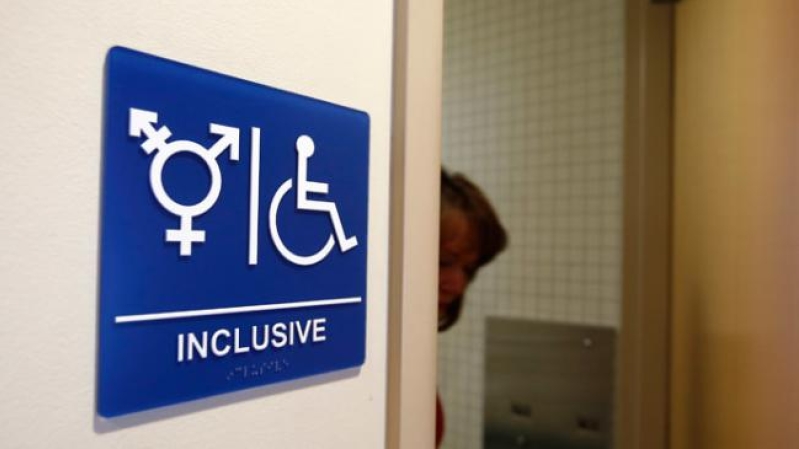
With a 15-20 vote, South Dakota state senators passed a bill on Tuesday to ban transgender students from using school restrooms that correspond to the gender with which those students now identify. House Bill 1008 was approved by a vote of 58-10 by state house of representatives earlier this month, so is expected to head to Gov. Dennis Daugaard yet this week, perhaps as early as Thursday (Feb. 18).
Provided that Daugaard signs the bill, South Dakota would be the first state in the country to pass such a law, likely setting up a clash with federal government representatives, who have taken the position that such policies constitute illegal discrimination, reports Instinct Magazine.
If Daugaard signs the bill, the Washington Blade stated South Dakota would be the "first in the nation to enact an anti-trans 'papers to pee' law."
In February 2016, Daugaard said during a news conference he has never met a transgender person and wouldn't make a commitment on the legislation.
Specifically HB 1008 would prohibit transgender students in public schools from using the public restroom consistent with their gender identity. The legislation states schools must provide transgender students with a "reasonable accommodation," although it can't be a shared facility, such as a locker room or public restroom.
State Sen. Brock Greenfield (R-Clark), the prime sponsor of the legislation, said the issue has been thrust upon them by an activist group of bureaucrats in Washington, DC. "It's only been a product of recent decisions made at the federal level."
Greenfield cited constituent concerns about "co-mingling" of individuals of different birth sex, saying it was "inappropriate."
"Do you feel it appropriate for a 13-year-old girl to be exposed to the anatomy of a boy?" he asked.
"I don't mean any disrespect in bringing this bill forward," Greenfield said. "I simply believe that what has happened in Washington, D.C., relative to this issue - and the promotion thereof - puts our children in a precarious position. We're talking about our youth co-mingling in bathrooms and locker rooms, biological males and biological females, and a lot of my constituents approached me even before the session last year and said they feel that's inappropriate."
The governor must either sign or veto the bill within five business days of transmittal, or else it becomes law without his signature in a procedure known as "pocket pass." If he vetoes it, but doesn't want to take that step publicly, Daugaard could ask the legislature to go back and work on it, cites the Washington Blade.






